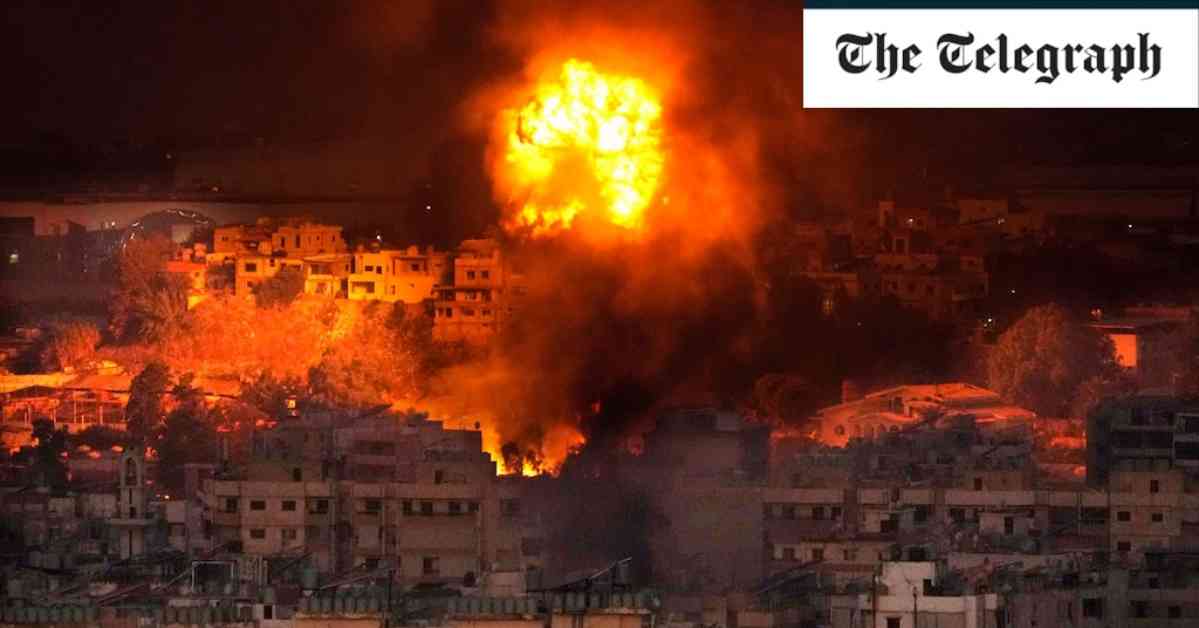Israel’s military has dealt a significant blow to the Hezbollah organization with the targeted killing of its leader, Sayyed Hassan Nasrallah, in Beirut. The IDF’s actions have sent shockwaves through the region, prompting a response from various parties involved in the conflict.
### IDF’s Continued Actions
Israel’s army chief, Lieutenant General Herzi Halevi, emphasized that the killing of Nasrallah is not the end of their efforts. He stated, “This is not the end of our toolbox. The message is simple, anyone who threatens the citizens of Israel – we will know how to reach them.” This declaration indicates that Israel is prepared to take further action against any threats to its security.
Additionally, the IDF reported that their strikes have also killed Ali Karake, identified as the commander of Hezbollah’s southern front, and several other Hezbollah commanders. The military highlighted Nasrallah’s role in orchestrating terrorist activities and attacks against Israeli civilians and soldiers, painting him as a central figure in Hezbollah’s violent actions.
### Humanitarian Crisis in Lebanon
The aftermath of the IDF strikes has led to a dire situation in Lebanon, with Unicef reporting that hospitals are overwhelmed and essential services like healthcare and water supply are rapidly depleting. Ettie Higgins, Unicef’s deputy representative in Lebanon, expressed concern over the escalating crisis, with thousands of people fleeing southern Beirut and families seeking refuge in makeshift shelters. The toll on children is particularly devastating, with 50 reported deaths already and the expectation of more casualties as the conflict continues.
Britain has issued a warning for its citizens to leave Lebanon immediately, recognizing the impending humanitarian catastrophe in the country. The Foreign Office is working to secure seats for British nationals on flights out of the region, urging them to prioritize their safety in the face of escalating violence.
### Impact on Hezbollah and Lebanon
A source close to Hezbollah revealed that contact with Nasrallah has been lost since Friday evening, raising speculation about his fate. The IDF’s statement that Nasrallah will no longer be able to terrorize the world suggests a significant blow to Hezbollah’s leadership and operational capacity.
Hassan Nasrallah, the Hezbollah leader, played a pivotal role in the organization’s history, leading armed resistance against the Israeli occupation of southern Lebanon and garnering support among Shia Muslims in the country. His death marks the end of a chapter in Hezbollah’s legacy, with implications for the group’s future actions and strategies.
### Regional Escalation
The IDF’s actions have sparked a series of events, including the firing of rockets from Lebanon towards Israel. The IDF reported that five rockets were launched towards the Jezreel Valley, prompting sirens and interceptions by Israeli defense systems. This exchange of fire indicates the potential for further escalation in the conflict between Israel and its adversaries.
Furthermore, Israel’s military announced the death of Ahmad Muhammad Fahd, the head of Hamas operations in southern Syria. The IDF stated that Fahd was planning a terror attack and had been responsible for previous attacks on Israeli soldiers, underscoring the interconnected nature of security threats in the region.
### Humanitarian Concerns and International Response
The impact of the IDF strikes on civilian populations in Lebanon raises humanitarian concerns, with reports of families fleeing their homes and seeking refuge in safer areas. The displacement of thousands of people, coupled with the destruction of critical infrastructure like hospitals and water pumping stations, highlights the urgent need for humanitarian assistance in the region.
International organizations like Unicef are mobilizing resources to address the escalating crisis in Lebanon, while foreign governments are advising their citizens to evacuate the country to ensure their safety. The unfolding situation in Beirut and its surrounding areas underscores the complexity of conflicts in the Middle East and the far-reaching consequences of military actions.
In conclusion, the targeted killing of Hezbollah leader Hassan Nasrallah by the IDF has set off a chain of events with implications for regional security, humanitarian concerns, and international relations. The aftermath of the strikes underscores the fragility of peace in the Middle East and the urgent need for diplomatic solutions to prevent further escalation of violence and suffering.












